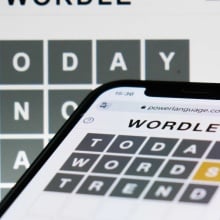A recent privacy overhaul of Google's location services may have rippling effects far beyond an individual's phone usage, suggesting that the dominance of law enforcement data sweeping may soon be checked.
Announced on Wednesday, the tech giant's new policy allows users to save their location history (known as Timeline) directly to their device, rather than have it stored in the cloud. Google will also shorten the data retention period (three months by default) and allow users to delete data related to specific locations. While location history was already an opt-in feature, the company also made it easier for users to toggle these controls on and off while using Google Maps.
As Google wrote in its blog, these changes give users "even more control over important, personal information," but it also directly curbs the efforts of law enforcement officials who have long used Google's data collection as an investigative tool. Using what is known as geofence warrants (or "reverse location warrants"), investigating officials have been able to legally compel tech firms (mainly Google) to give up location history data in order to identify the movements of people in any given area, regardless if they are a suspect or not.
Reverse location warrants surged in recent years
According to Google, the company received 11,554 warrants from law enforcement in 2020, up from 982 in 2018. Last year, however, the number skyrocketed, with Google reporting 50,000 subpoenas, warrants, and other legal requests in just the first half of the year, NPR reports.
Privacy watchdogs have warned of these types of surveillance tactics as "unconstitutional," calling on state governments to outlaw the practice among their agencies.
"Geofence warrants require a provider—almost always Google—to search its entire reserve of user location data to identify all users or devices located within a geographic area during a time period specified by law enforcement. These warrants violate the Fourth Amendment because they are not targeted to a particular individual or device, like a typical warrant for digital communications. The only “evidence” supporting a geofence warrant is that a crime occurred in a particular area, and the perpetrator likely carried a cell phone that shared location data with Google," the Electronic Frontier Foundation wrote in a press release about Google's decision.
In 2022, New York re-introduced a bill that would ban state law enforcement from obtaining residents’ private user data. In 2023, the first geofence warrant case went to federal court, receiving support from the ACLU and public defenders offices nationwide. The coalition asserted in an amicus brief that police should be curtailed from using evidence collected using geofence warrants. A federal judge in Virginia ruled that the use of the search warrant was unconstitutional.
Bipartisan groups of legislators have also come out against the potential dangers of allowing these kinds of dragnet searches by government agencies.
Geofence warrants, and similar keyword warrants, have been at the center of privacy fears for protesters and those seeking abortions, as well. In 2022, following the repeal of privacy protections under Roe v. Wade, privacy groups warned that location data and search history could be used to prosecute people traveling to have abortions. A California legislator introduced a bill to address the potential impact of geofence warrants on reproductive health seekers shortly after.
Watchdog groups like the Electronic Frontier Foundation have called attention to the use of geofence warrants to obtain Google location data on protesters in Kenosha, Wisconsin, following the police shooting of Jacob Blake, and in Minneapolis, Minnesota following the murder of George Floyd.
Google's actions intended to 'end to such dragnet location searches'
Those who support the use of geofence warrants believe the pros outweigh the potential dangers, serving as important investigatory tools and expediting the work of law enforcement officials in solving local crimes.
According to a statement made to Forbes, Google confirmed that the recent overhaul was made not only to empower its users but to also "explicitly bring an end to such dragnet location searches."
Such searches are just one of many concerning surveillance tactics at the hands of tech giants and law officials. Recent discoveries that law enforcement and government agencies alike have the ability to monitor individual push notification data stoked similar privacy fears, and on Dec. 14, Apple quietly updated its law enforcement policies, making it more difficult for investigators to obtain such data.
While investigators can still request an individual's full account details, Google's new location history policy simultaneously addresses privacy concerns and pulls the decision of whether or not to allow wide-sweeping warrants out of the hands of lawmakers and judges — for now.
Topics Google Privacy Social Good



















